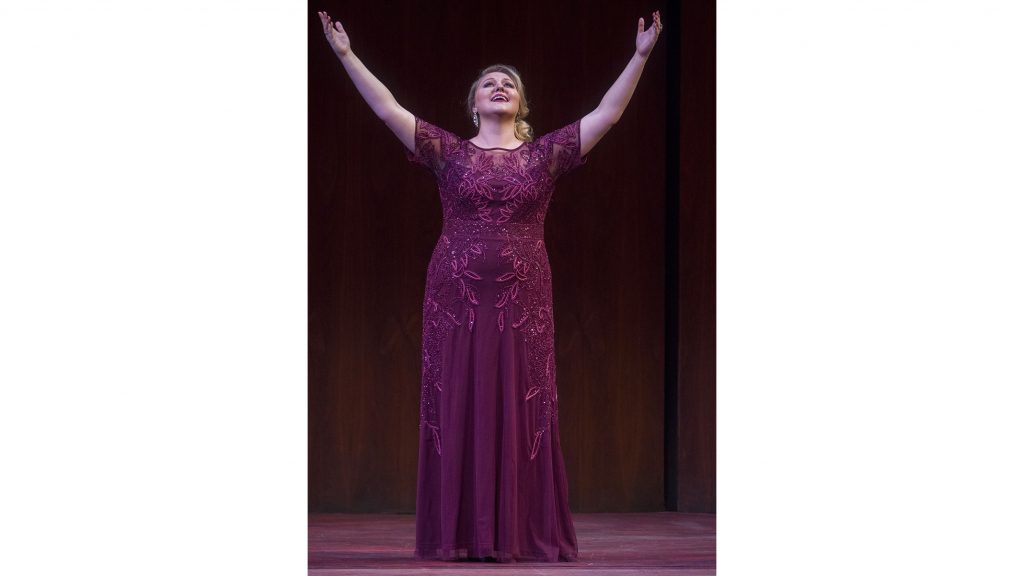During her sophomore year at the University of Iowa, Jessica Faselt took a trip to New York City. Faselt, an aspiring opera singer at the time, made it a point to visit the Metropolitan Opera House, the largest in the Americas.
She and her brother went to the opera facility early one day with the intent of getting a backstage tour. They were in luck and received the final two tickets for the day. The tour group was eventually taken on the stage itself, but they had to remain in the back, because workers were changing the set at the front.
While on stage, the guide asked if anyone wanted to work at the opera house in the future. Only Faselt raised her hand, and the guide asked if she was willing to sing for the group.
Faselt obliged and performed part of an aria from the background of the stage. By the time she was finished, the room was silent — even the workers had ceased their work.
The silence broke when everyone in the room applauded her. Faselt had made her Metropolitan Opera House début.
Years later, Faselt was on the same stage again, only instead of singing from the back toward an almost empty room, she was front and center, serenading an audience of more than 3,000 people, including some of the highest industry professionals.
This performance took place at the April 29 Grand Final Concert, the closing event of the Metropolitan Opera National Council Auditions, a competition designed to give young opera singers a chance to be heard and critiqued by professionals.
This was Faselt’s fifth year taking part in the audition. Each year she participated, she moved up one spot as a finisher.
“Every year, I climbed up a rung on the ladder,” Faselt said. “It shows perseverance and constant improvement. It made it all the more satisfying.”
This year, she began at the Minnesota District, one of 42 across the United States and Canada. She then proceeded to the Upper Midwest Regional, one of 12. Finally, Faselt had made it back to New York City, where she competed in the semifinals and finals, becoming one of the audition’s five winners.
She won $15,000 and exposure to some of the best in the industry.
Jimmy Longoria, who runs the upper-Midwest region along with his wife, Connie Fullmer, says Faselt’s victory is all the more inspiring due to her being an Iowa native.
“Coming from Iowa, she has none of the backing many others do,” Longoria said. “Many come from several generations of opera and have lots of experience. Jessica came from Iowa Cornfields to Metro Glitter.”
Fullmer added to the idea that Faselt’s familial origins were unusual amongst finalists in the competition. Many singers have been raised since birth to sing opera, unlike Faselt, who only started during her teenage years.
“Her parents were completely uninformed of what opera was about,” Fullmer said. “They knew everything about raising football players, but nothing about opera.”



